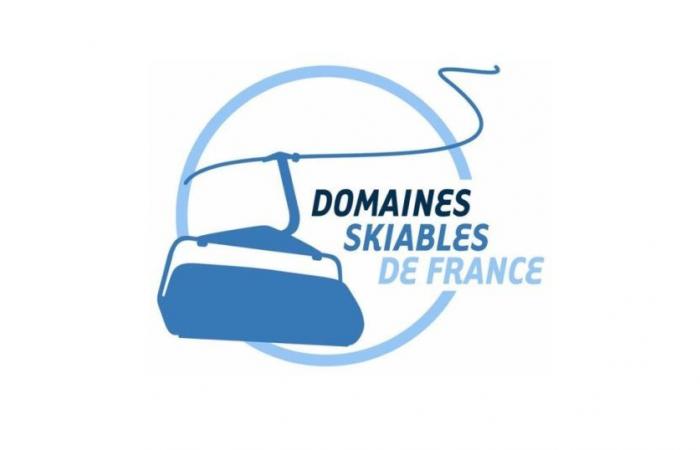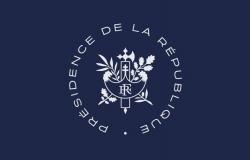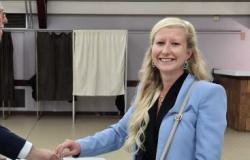The Savoie section of Domaines Skiables de France mandates a scientific organization to create the first operational guide for the rehabilitation of ski slopes and open mountain environments.
br>
The preservation and restoration of soils in alpine pastures is of crucial importance, not only to ensure the sustainability of mountain ecosystems, but also to meet the needs of various stakeholders, such as farmers, ski resort managers and local authorities. This is why the 35 ski lift companies in the Savoie mountain areas, members of Domaines Skiables de France, commissioned a scientific body in November 2022 to conduct a study to improve knowledge of mountain soils and identify the success and failure factors of the ecological rehabilitation of ski slopes. Through a large-scale experiment conducted in 8 pilot resorts in Savoie, the success and failure factors of ecological rehabilitation projects for ski slopes were determined. The good understanding of the soil and the good practices resulting from this study have made it possible to produce an operational guide to best support the various stakeholders at each stage of the ecological rehabilitation of open mountain environments.
Wednesday June 19, representatives of the 35 ski lift companies in the mountain areas of Savoie, members of Domaines Skiables de France, gathered in the Saisies resort to discover the results of the study as well as the operational guide on operational rehabilitation alpine lands that they sponsored, to the scientific group made up of the Soltis Environnement study laboratory, the Société d’Économie Alpestre de Savoie (SEA 73) and the Edytem/Université Savoie Mont-Blanc laboratory. The study and the guide were carried out through a large-scale experiment, carried out in 8 pilot stations in Savoie: Courchevel, les Arcs, la Plagne, Aussois, Val Cenis, Valmeinier, les Saisies and la Rosière, in collaboration with 22 mountain pastures exploiting the mountain pastures of these ski areas. The total investment for the study and the guide amounts to €138,000 including tax, 100% financed by all 35 Savoyard ski lift companies.
The members of DSF Savoie have chosen to share the conclusions of the work carried out, by making this operational guide of good practices available free of charge to all those ordering work in the mountains, ski lift companies, project managers, design offices, companies, etc. in order to best help all stakeholders during each stage of the rehabilitation of open mountain environments. A training module for the operational rehabilitation of alpine pastures is currently being created, it is being produced by the Training and Certificates division of Domaines Skiables de France.
The study took place in 4 main stages:
- Production of a bibliographic synthesis of international scientific and technical literature, thus providing data on ecological rehabilitation methods, as well as on the results and lessons learned from past experiences.
- Conducting interviews with the managers of eight pilot stations in Savoie and 22 alpine farmers using alpine pastures to identify the specific needs of local stakeholders and to understand the difficulties linked to the rehabilitation of mountain soils.
- Survey of 31 sites to assess the effectiveness of rehabilitation measures.
- Analysis of the data collected to identify the factors contributing to the success of rehabilitation measures for degraded alpine pastures.
All four methodological phases made it possible to formulate a large number of recommendations that are detailed in the 19 fact sheets of the operational guide for the rehabilitation of alpine pastures. The fact sheets proposed in this guide present the complete approach allowing effective implementation of these recommendations. These aim to increase the chances of success of the rehabilitation of alpine pastures. They contribute not only to restoring the biodiversity and productivity of mountain ecosystems, but also to strengthening their resilience in the face of current environmental changes. By preserving these fragile habitats and combating erosion, the sustainability of the essential ecosystem services that they provide is ensured, particularly with regard to their agricultural use (fodder production) and recreational use (summer and/or winter activities).
About the authors of the study and the guide “Operational rehabilitation of alpine pastures”:
Soltis Environmenta design office based in Voiron (38), offers tools and solutions to assess the agro-pedological and functional potential of soils, integrate this data into land use planning, and recommend rehabilitation solutions. Research and development play a central role in the company’s activity, with a firm commitment to facilitating the transfer of research results to the operational sphere. The company thus offers its clients operational, innovative and robust approaches to guarantee the rehabilitation and protection of soils, thus ensuring the provision of ecosystem services essential to society. Soltis Environnement, and in particular Lisa Benas, project manager in soil engineering and Florence Baptist, director of Soltis Environnement, coordinated the study which led to the production of this operational guide. The team was heavily involved in each stage of the study: bibliographic synthesis, interviews with local stakeholders, soil surveys in the field and data analysis in order to arrive at concrete recommendations for stakeholders responsible for the ecological rehabilitation of alpine pastures.
The Savoy Alpine Economic Societyalso known as SEA 73, is a departmental pastoral service. With around 300 members, this associative structure defends the interests of pastoralism from the local to the national level via the AURA Pastoral Network. It is a professional agricultural organization made up of farmers, but also local elected officials and partners representing all stakeholders in pastoral areas, such as protected areas, financiers and administrations. It works for the general interest of the Savoie mountain pastures by implementing its own actions, collaborating with other structures or establishing solid partnerships. Its main missions include advising mountain pasture farmers and communities, supporting collective pastoral structures (AFP, GP), agro-environment, communication and pastoral awareness, as well as territorial mediation. SEA 73 and in particular Rémy MAGDINIER are therefore key players in the project; their relationships with local stakeholders, in particular mountain farmers and ski areas, have enabled all the interviews to be successfully carried out. Their expertise has also enabled them to assess the fodder quality of the rehabilitated sites and to provide an informed perspective on the specificities of mountain environments.
Edytem (Mountain Environments, Dynamics and Territories) is a joint research unit of the Université Savoie Mont Blanc and the CNRS. Born from the desire to bring together researchers in geosciences (geology, hydrogeology, geomorphology) and in human and social sciences (geography), Edytem aims to resolve, through an interdisciplinary approach, the environmental and societal issues specific to mountain environments, dynamics and territories. It is in this context that the partnership with Jérôme Poulenard, a teacher-researcher at Edytem and a soil specialist, seemed inevitable. With many years of experience in research on mountain soils and socio-ecosystems, Jérôme was able to support the group by providing precise expertise in the field as well as in the discussions related to the establishment of recommendations.
About DSF Savoie : The Savoie section of Domaines Skiables de France includes Albiez Montrond – Aussois – Bessans – Bonneval – La Norma – La Toussuire / les Bottières – Le Corbier / St Colomban des Villards / St Jean d’Arves – Les Karellis – Orelle – Saint François Longchamp – Saint Sorlin d’Arves – Val Cenis – Valfrejus – Valloire – Valmeinier – Courchevel / Méribel / La Tania – Granier – La Plagne – La Rosière – Les Arcs / Peisey Vallandry – Les Ménuires – Méribel / Brides les Bains – Pralognan – Sainte Foy Tarentaise – Tignes – Val d’Isère – Val Thorens – Valmorel – Les Aillons – Margeriaz – Arêches-Beaufort – Crest Voland – Savoie Grand Revard – Les Saisies – Notre Dame de Bellecombe / Flumet / Praz sur Arly.
Note to reader :
This is the copied and pasted content of the official press release from its issuer who takes full responsibility for it. TendanceHotellerie neither approves nor disapproves this press release. This press release has nevertheless been subject to verification, which can sometimes lead to a delay in posting of a few hours or days. br>
Note to the issuer of the press release :
Information regarding the insertion of your link and/or your logo and/or your image is accessible here. br>
In the frame strictly private (see the T&Cs) of the partial or complete reproduction of this page, please insert the brand “TendanceHotellerie” as well as the link https://suiv.me/21902 to its source or the QR Code accessible at the address https://a-a-3-en.e24n.com/en/trends3/wp-content/uploads/2024/07/21902.qr.png. See the instructions for use. |






